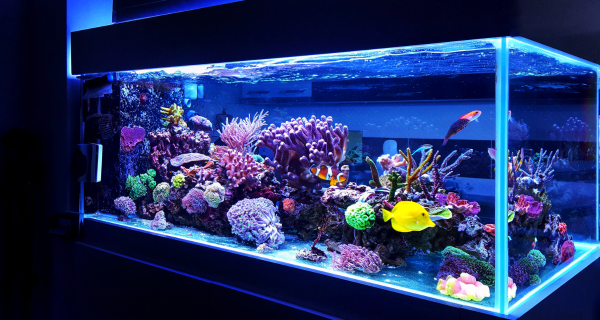
In this article we cover how to best look after your fish, including suggestions for siccessful fish keeping, notes on why pet fish die prematurely and how to avoid it, and what to do with your aquarium while on holidays.
The information for the this article was supplied by Steve Baines, Russell Morris (GeoFlex and Geo Liquid Australia) and John Newman (Queensland Aquarium Hobbyists) for The Pet Directory.
Suggestions For Successful Fish Keeping
POSITION! POSITION! POSTION!
The positioning of the aquarium is very important…
Never place your aquarium where it receives direct sunlight or near a draught. Of equal importance is the fact that fish tanks are very heavy. Make sure the base on which the aquarium stands on, is solid and level. A piece of polystyrene is essential between the bottom of the aquarium and the base on which it sits. Wood, steel, plastic contract and expand at different tares to glass and without this buffer of polystyrene the glass can easily crack causing disaster. Proximity to a power source is generally required for electrical equipment such as heaters, filters and lights.

AQUARIUM COSTS
Spend more at the beginning…
If you buy a puppy or a kitten, the expense is generally with ongoing necessities such as vaccinations, flea and worm control, grooming tools, leads, bedding etc. and food. With fish keeping, ongoing costs are very minimal but it is a good investment to set up your aquarium properly in the beginning. Decide before hand what type of fish you would like to have. It will have a significant effect on the equipment you will need to maintain you livestock. Purchase all necessary equipment e.g. lights, filters, heaters etc BEFORE purchasing livestock. Tropical fish will require a thermostatically controlled heater. This piece of equipment keeps tropical fish warm during the winter months. Without it they will surely perish. Remember, prevention is better than cure.

AQUARIUM WATER
Living in a watery world…
Dogs, cats, birds, guinea pigs, and even snakes can move away from their waste material. Fish cannot! Fish eat, sleep, breath, and breed in their watery environment.
It is absolutely essential that partial water changes be done on a regular basis. A good rule of thumb is to change 25% to 30% of aquarium water once a fortnight. When changing water always remember to add a water conditioner to remove chlorine and other chemicals. When selecting an aquarium, try to obtain something that holds a significant volume of water. Smaller bowls and containers hold few inhabitants and pollute very easily. Remember that fish should be maxium enjoyment and minimum maintenance. A point to consider at this time is that goldfish have a very small stomach and food passes through very quickly. More eating = more waste = more cleaning! Feed goldfish twice a day and only what they can eat within a few minutes. Provide weed that they can nibble on at other times.

TWO KEYS TO SUCCESSFUL FISH KEEPING
The two fundamentals to maintaining a healthy aquarium are…
1. Do not overfeed
2. Regular water changing with correctly treated water
Happy Fish Keeping!
Why Do My Fish Die?
SICK of bringing home fish from the aquarium to find them dead within days or weeks? Here are some essential things to know that will mean that your next trip to the aquarium shop will be to ADD to your collection NOT TO REPLACE dead fish!
NEVER add untreated municipal tap water directly to your aquarium without treating it first. You should treat tap water properly before putting it into the aquarium or doing a water change, as most municipal water has Chlorine and / or other chemicals in it which can kill fish (as well as severely impact the all-important colonies of essential bacteria that do the real work in maintaining the health of your aquarium.).
In recent years many CITIES HAVE GREATLY INCREASED the level of ANTIMICROBIAL CHEMICALS IN DRINKING WATER in response to increased human health risks caused by reduced and potentially contaminated water supply, and major outbreaks of Cryptosporidium and other water-born diseases in Sydney and other areas. THIS GREATLY INCREASES THE RISK OF FISH DEATH!
The type of water treatments that you should use depends on your area’s water, and the kind of fish you keep. CONSULT WITH YOUR LOCAL PET OR AQUARIUM STORE to determine the best treatment for your aquarium.
ALWAYS use a Chlorine Neutralizer like “AQUAMASTER Chlorine Neutral” to remove harmful chlorine & chloramines from tap water. Adding “GEO - LIQUID” as well will balance the levels of trace elements, minerals and nutrients in your tank, as well as remove nearly all other chemical residues that may be lurking in your tank that are not effected by Chlorine neutralizers.
TEMPERATURE, TEMPERATURE, TEMPERATURE always have the water at room temperature for cold water fish or heated to the correct temperature using an aquarium heater prior to adding fish or changing the water.
DON’T change more than about 30 - 40% of the water at any one time. (Smaller frequent changes are much better than fewer large ones.) If your other aquarium maintenance practices are OK, this should eliminate 80% of the root causes of all the problems you are ever likely to come across. Your fish should live happily for years!
The Aquarium While On Holidays
A few months after it is set up, an aquarium reaches its biological equilibrium. Provided that the filtration is suited to the capacity of the tank and its inhabitants, and the tank is not overpopulated, it can then be ‘left running’ for a few weeks without posing any major problems. This applies even more so in the case of larger tanks. The stability of the environment in the aquarium is proportional to its volume of water, and a large aquarium is less sensitive than a small one to any changes in the water parameters.

Breakdown
The main risks during your absence are an electricity cut lasting more than a day, or more commonly the failure of a piece of technical equipment. An aquarium can easily become a death trap, following the breakdown of one of its maintenance systems. A simple method of minimising the risks is to fit new and more reliable equipment. This must be done several days, or even weeks, before departure to ensure that each piece of equipment is working properly.
Minimum requirements
If you go away during the summer, it is advisable to switch off the heating element to avoid any risk of overheating. This of course does not apply to tanks containing fish which demand a high temperature, such as discus, or to tanks installed in a cool environment such as a cellar.
It is also advisable to disconnect the carbon dioxide supply systems. Even though the risks are minimal, by doing this you will avoid anything happening which could lead to the asphyxiation of the fish or a fall in the pH level. Plants can withstand a small decline in the supply of carbon dioxide for a few weeks.
Before Leaving
The filtration sponge should be cleaned in half clear water half tank water a few days (preferably a week) before you go away and one third of the water in the tank should be changed the day before your departure. The tank should then be filled to its maximum capacity to take account for any evaporation resulting from very hot weather conditions. The introduction of freshwater snails can resolve the problem of getting rid of organic waste, such as vegetable debris and excess food.
Feeding
Feeding the fish may initially appear to be a problem. However, most of the fish can withstand a period of fasting and the metabolism of the adults allows them to survive for two or three weeks wit hout food. Young fish, on the ot her hand, have little chance of tolerating such treatment and those which do not end up in the stomach of a hungry adult will die of starvation. Hence, automatic food distributors are particularly useful during periods of absence. They should be installed and tested several days before departure to ensure that they are working properly and to adjust the quantity of food to be distributed.
Automatic feeders that are not equipped with their own time switch must be linked to an auto-timer separate from that used for the lighting. These devices deliver food in flakes or granules which can be affected by humidity. They must therefore be placed in a well-ventilated location and not between the surface of the water and the cover of the tank. Otherwise, there is a risk that the particles of food will stick together forming a compact block which will stay jammed in the supply tube or, worse still, fall into the water bringing with it fungi and undesirable bacteria.
‘Holiday food blocks’ can provide a stopgap measure that it must be remembered that, as they dissolve, they will bring about an increase in the water hardness and the pH level. Remember that their size is not a true indicator of the amount of food they release.
Well-informed supervision –
AKA the sucker
Another solution is to entrust the care of your fish to someone who will come in regularly and feed them. If this option is to prove satisfactory, the person concerned must have at least a basic knowledge of fish keeping. The most common reaction of someone without such experience is to overfeed ‘the poor little creatures’ on the pretext that they rush towards the glass front of the aquarium as soon as they observe any movement. Excess food will deteriorate in the water, leading to an accumulation of nitrogenous waste, in turn causing diseases and the proliferation of all sorts of algae. You can avoid this by preparing separate quantities of each meal, provided the person responsible does not forget to feed the fish then give them too much on the next occasion.
If you choose this method of supervision, therefore, it is absolutely essential to give your stand-in all the necessary instructions.


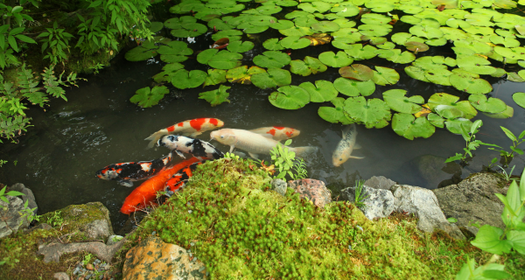
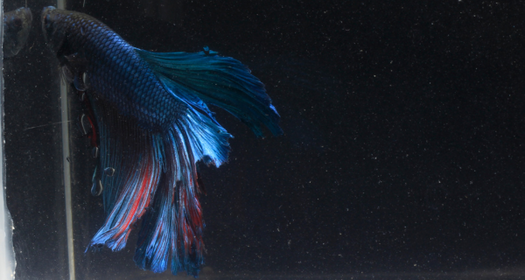
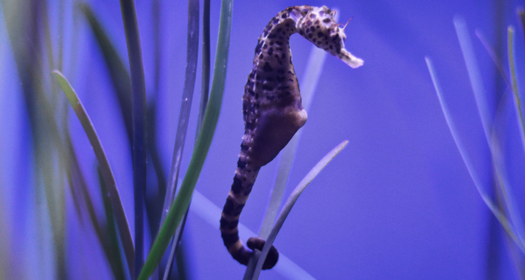
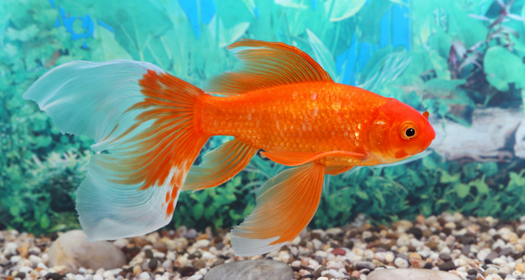
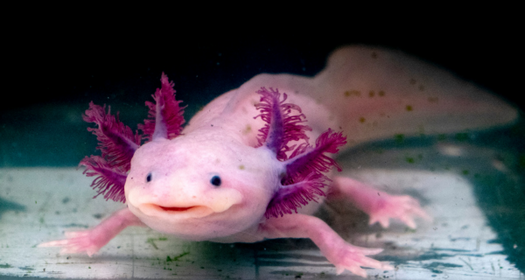




Leave Comment Below